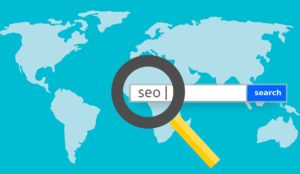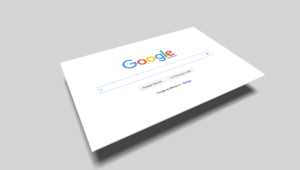Buying Keyword and A Browsing Keyword
When you try to promote products online in the hopes that they will sell and you will earn a commission. It is critical to understand the distinction between a buying keyword and a browsing keyword.
You must be aware of the distinction between a buying term and a browsing keyword when you are trying to market things online in the hopes that they will sell and you will receive a commission from the sale of the products. That is why keyword intent is still important for SEO.
Here’s why:
When you are creating a website or a group of web pages that all have one main purpose you will be focusing on certain keywords.
You want to know exactly what people are searching for before you start creating pages. A keyword or a keyword phrase is what people type into the search engine when they are looking for something.
Now, let’s say you are looking to sell a product online. You want to know what people are searching for when they type in ” teeth whitening .” Your website or webpage must focus on this keyword phrase because by doing so you will make more money from the traffic it brings in.
However, if you were just browsing the internet and wanted to see what other websites looked like that focus on teeth whitening, then searching with this keyword phrase would not bring up any results. So while a buying keyword is something specific that you are targeting to
This is why you will want to concentrate on particular keywords whenever you are developing a website or a collection of web pages that are all meant to serve the same primary function.
Before you begin developing pages, you need to have a solid understanding of the kinds of things that people are looking for online.
When using a search engine, the words or phrases that individuals type into the query box to look for specific information are referred to as keywords or keyword phrases.
As an affiliate, it is in your best interest to target customers who are in the latter stages of the purchasing process.
If the people who are already shopping with their wallets out are searching for the keywords that you are focusing on your site, then you will have the greatest chance of making sales and earning commissions from those sales.
Take this extremely specific scenario, for instance. A person who searches Google for “digital camera review” can give the impression that they are ready to buy a camera, but in all likelihood, they are not even close to purchasing at this time.
This is a very general keyword, and the individual has not even decided which two or three digital cameras they would be thinking about purchasing at this point.
At this stage, the prospect of purchasing a camera is nothing more than a passing thought for them.
The person who searches for the “cheapest digital camera” on their computer is certainly far closer to purchasing than the person who used the first example.
This person is aware of the things that are most important to them. Price. The digital camera with the lowest price tag is a popular search term, but we can do better.
When someone searches for “cheapest Canon PowerShot,” they have their credit card in their hand and are prepared to purchase if they find a price that they believe to be lower than anything else they can find online or offline.
When trying to sell products, understanding the distinction between a buying term and a browsing keyword is of the utmost importance.
What are buyer keywords?
A buyer keyword is a different word or phrase that someone is using to search for something on the internet. When you are trying to promote products online in the hopes of them selling, knowing the difference between a buying keyword and a browsing keyword is very important.
Types of Keywords
When researching to uncover the reasons a user searches, we can divide all terms into one of four primary categories of intent: commercial, transactional, informational, or navigational.
In the following, a brief explanation of each type will be provided after we have defined what these types are.
There are four primary types of keywords you can use when promoting products on the internet: buying, selling, branding and natural:
1) Buying Keywords – These are the specific words or phrases that people type into a search engine to find what they’re looking for. For example, if you sell vitamins online, your buying keyword would be “vitamins.”
2) Selling Keywords – These are the same as buying keywords but instead of referring customers toward your website or product page, they refer them elsewhere. For example, if you run an online store.
3) Branding Keywords – Keywords that are directly related to your company’s brand, products, and services are known as branded keywords.
These keywords can help you build a brand and differentiate your website from the competition. For example, if you run a yoga studio, your branding keyword might be “yoga.”
4) Natural Keywords– Both search engines and social media platforms make it possible to uncover results for these kinds of terms. These keywords focus on providing information about products or services that don’t typically fall into any category.
Related articles:
Get More Conversions From Existing Traffic
Using Email Marketing To Make More Money
The practice of browsing through keyword results can still be useful, as well as very valuable. If you are looking for an opportunity to create a site to prove that you are an expert in your field, or attract people to sign up for an email list that you are maintaining, then browsing keywords is wonderful for these things.
Additionally, if you are trying to attract people to sign up for an email list that you are maintaining, then browsing keywords is wonderful for these things.
Buying keywords, on the other hand, is an absolute must if the page you’re building is intended to direct visitors to a specific location where they can purchase so that you may earn a commission on the transaction.
On pages with browsing terms, you may occasionally and unintentionally make sales. You should expect to make sales on a regular and frequent basis from pages that contain buying keywords.
What are high-intent keywords?
High-intent keywords are the most targeted type of keywords out there because they’re specifically chosen to bring in people who are interested in what you have to offer. For example, if you sell natural health products, your high-intent keyword would be “natural.”
The best way to find high-value keywords will vary depending on your industry and what types of products or services you’re selling.
What is buyer intent?
Buyer intent is the type of keyword that search engines use to determine what people are looking for. For example, if you’re selling a product online, your buyer intent keywords would be “buy,” “purchase” or “buying.”
How do I find my niche keywords?
Niche keywords are the types of keywords that are specifically related to your industry or subject matter. For example, if you’re a kitchen blogger, your niche keyword might be “kitchen.”
What are low-intent keywords?
Low-intent keywords are those that don’t focus on providing information about products or services. Instead, they’re typically used to promote links back to your website (known as “link baiting”). For example, a low-intent keyword might be “malware removal guide.”
Conclusion
Understanding the distinction between a term used for browsing and one used for purchasing can be the difference between having a website that makes $100 per month and one that makes $1,000 per month.






0 Comments